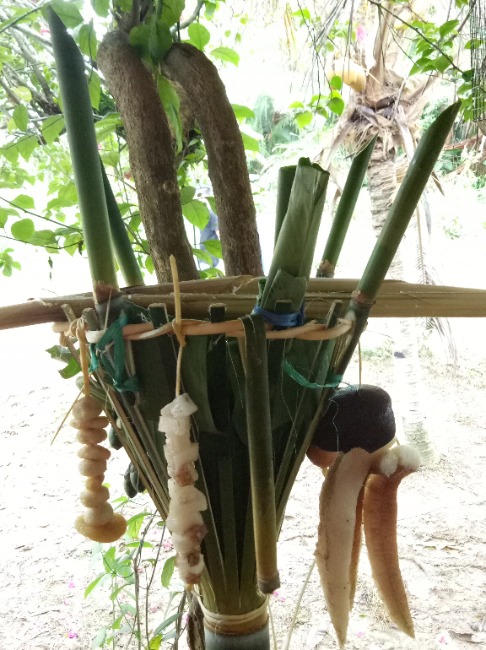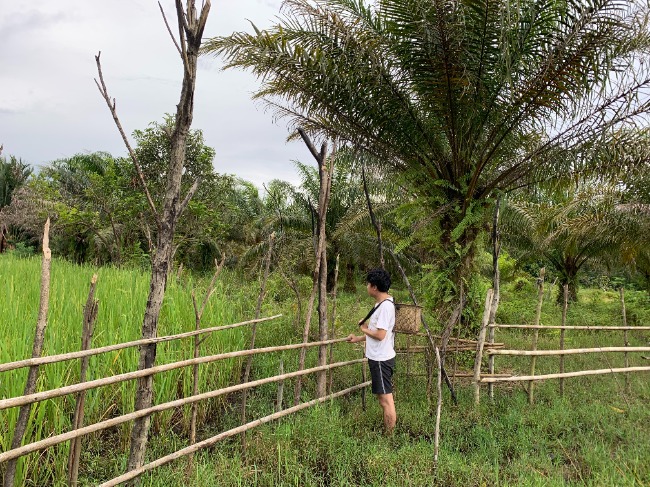Indigenous Dayak Benawan in West Kalimantan
Nikodemus Niko
The indigenous Dayak Benawan people live in Sanggau District, West Kalimantan. Their deep connection with nature has been passed down through generations. For them, the forest is not just a source of livelihood but a way of life that is intricately linked to their culture and spiritual beliefs.
They believe the forest is a living entity. Everything in it has a spirit. It provides for their physical and spiritual needs, from food and medicine to cultural practices and ceremonies. Their close relationship with nature has allowed the Dayak Benawan to develop sustainable practices and to live in harmony with the environment for centuries. Their deep understanding of the forest and its cycles has allowed them to use its resources in a way that ensures long-term survival without harming the environment.
As a native Dayak Benawan myself, I have been witness to how palm oil plantations destroyed our culture and had a devastating impact on the environment. Deforestation for palm oil has eroded the soil, caused loss of biodiversity, and increased carbon emissions. When we realised the damage the palm oil industry was causing, we began to speak out against it.
Not all of our people did realise it. Some agreed to sell their land to the investors, unaware of the consequences of their decision. The investors claimed palm oil would bring prosperity and economic development to the region, and the Dayak people believed them. They were promised jobs, better infrastructure, and improved living standards.
The investors quickly cleared the forest to make way for the plantations, destroying our ancestral land and way of life. We lost the connection to the forest, our source of food, medicine, and spiritual nourishment.
Our people´s struggle against palm oil expansion is a powerful reminder of the importance of protecting our environment and respecting the rights of indigenous communities. In the face of many challenges, the Orang Dayak Benawan remain resilient and continue to fight for their rights and the protection of their environment.
The human-nature connection of our community is a powerful example of how indigenous communities can live in harmony with the environment. However, our way of life is under threat from modern-day pressures, and it is essential that we work together to protect our environment and preserve our culture for future generations.

Ibu Lusiana Lelen drying rice (mawant pade). Dayak Benawan people have traditionally engaged in subsistence rice farming to meet their family's needs. But now they can earn more money by working in oil palm plantations. They tend to purchase rice rather than growing it themselves.

“Feeding the new rice" (mpara pade uman). Newly harvested rice from their fields will be stored in sacks. They “feed” it by placing offerings such as steamed rice (freshly cooked from the top layer), water, liquor (arak), and umpak (consisting of betel leaves, slaked lime, and gamber).

Benawan Dayak women fish in rivers, lakes, and canals using local knowledge and traditional tools (nyikep).

"Feeding the ancestral heritage" (minyuk pesaka uman). Each Dayak Benawan family has ancestral heirlooms that they have preserved from generation to generation. The heirlooms include jars, machetes, stone bowls, and stone plates. They are believed to be the guardians of their family who still reside in the forest. A Minyuk pesaka uman procession at the beginning of each year includes offerings such as rice cake (tumpik), herbs (purut), liquor (arak), water, yellow rice, daun sirih, and a type of traditional food called mako tepe'k.

"Spirit invocation" (nguku' semangat). This ritual is always performed during Dayak Benawan ceremonies. It may take place during a wedding ceremony, or as part of a healing ritual.

This receptacle is a rimah ngkumes adat. The offerings necessary for specific rituals such as weddings are prepared and stored here.

This is a house for the Benawan ancestors (Dio Pegagi merimo). It is also a place for the God (the Deity or the Unreachable, Jubata) known as Pedagi. It serves as a venue for annual rituals such as Mpara kampong. Despite embracing a world religion, the Dayak Benawan people still believe in the existence of their Jubata. They perform customary rituals at the Dio Pegagi to seek protection from diseases and other dangers in the fields.

100 percent of the Dayak Benawan community in Kampung Pejalu are followers of the Catholic faith.

Oil palm fruit awaiting pickup by the road in an oil palm plantation.

A Benawan man stacking oil palm fruits from the plantation by a house. They lack knowledge about how oil palm cultivation destroys their forests.

Excavator, the forest destroyer. It is used to clear large-scale oil palm plantations on the lands of the Benawan people. It cuts down large forest trees, including the increasingly scarce sagu and nsinok, to make way for oil palm cultivation.

In the past, this was the habitat of a huge variety of trees and forest animals. Now, all that remains is grass. This land is being prepared for a new plantation.

The Benawan people's fields are gradually being encroached upon by oil palm plantations. The rice is no longer fertile, and the land is beginning to dry up. Harvest yields are no longer sufficient for their families' needs. In the future, the Benawan people may lose their fields altogether.
Nikodemus Niko (nikodemusn@umrah.ac.id) is a native Dayak Benawan. He teaches sociology at the Raja Ali Haji Maritime University, Tanjungpinang, Bintan, and is a doctoral candidate at Padjadjaran University in Bandung. Two of his published books are Perempuan Dayak Benawan: kedudukan pada struktur domestik dan publik (Benawan Dayak women in the domestic and public space, 2016), and Berebut napas: perempuan Benawan dalam kepungan sawit (Fighting for breath, Benawan women trapped by palm oil, 2023).











